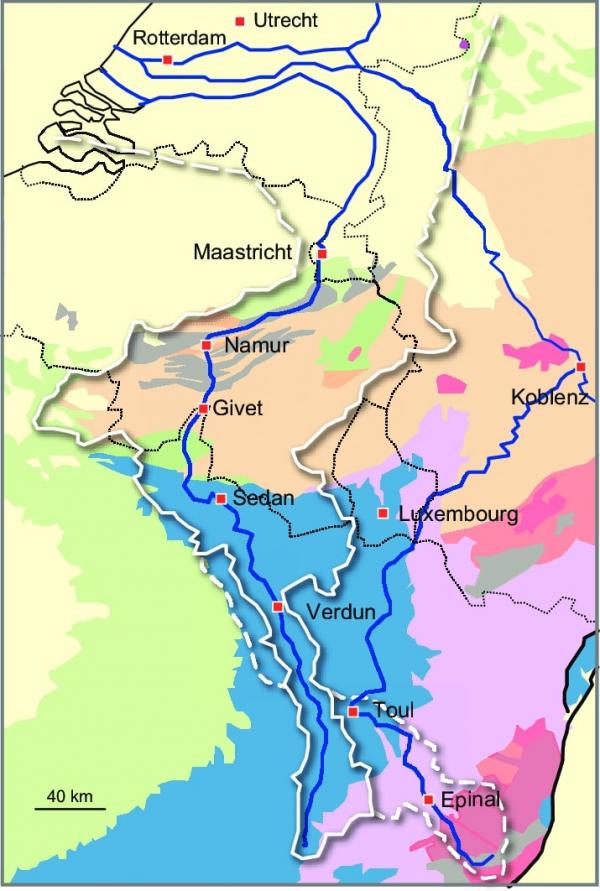Water utilities request transparency over discharge permits as Meuse River quality deteriorates
12 Sep 2023 by The Water Diplomat

The quality of the Maas / Meuse River, shared by France, Belgium and the Netherlands has deteriorated further due to the discharge of harmful chemicals. Over the past year, concentrations above the permitted levels have been measured for 79 substances. In 11% of all measurements of water quality along the river, pollution levels were found that were above the maximum set by European norms. This led to a total of 62 halts on the intake of water for treatment for drinking water during 2022. In addition, the river's flow has declined because of climate change, resulting in less dilution of the harmful chemicals. These are the key messages of the recently published annual report produced by RIWA, the Association of River Water Companies for the Maas / Meuse. The utilities which are united in RIWA use the water of the Maas / Meuse River as a source of drinking water for some 7 million customers across Belgium and the Netherlands.
In their 2022 annual report they are requesting more transparency about the indirect and direct discharge permits issued to companies. To adequately perform their task of protecting water quality, they state, it is essential to be able to identify the harmful substances that end up in the water, as well as to know where exactly they are being discharged. They are requesting a complete overview of all direct and indirect discharge permits. They would like substances that are harmful to drinking water supplies to be included in discharge permits in permits, and when new permits are issued (or old permits are revised) they would like a baseline measurement to be conducted to get a complete picture of the harmfulness of the discharge.
As an example, the RIWA points to the per-and polyfluoroalkyl substances (PFAS) chemicals used to make coatings and products that resist heat, oil, grease, stains, and water. RIWA states that PFAS chemicals are appearing in the environment and are harmful to health even in small quantities, having a negative effect on the immune system and having carcinogenic properties (I.e., can cause certain types of cancer). Therefore, RIWA has been advocating for PFAS discharges to be reduced to zero for years to be reduced to zero.
In February this year, five European countries (Denmark, Germany, Norway, Sweden, and the Netherlands) submitted the EU PFAS Restriction Proposal, which seeks to ban the use and manufacture of all PFAS chemicals. This proposed ban has, however, met with stiff industry resistance, as reported in the Water Diplomat.
Maarten van der Ploeg, director of RIWA-Maas, speaking to BNR news radio, sees the decline in water quality as a kind of mirror of our society. In his opinion, we need to stop viewing our surface water as a kind of sewage drain, and the quality of our water deserves just as much attention as floods and drought.
